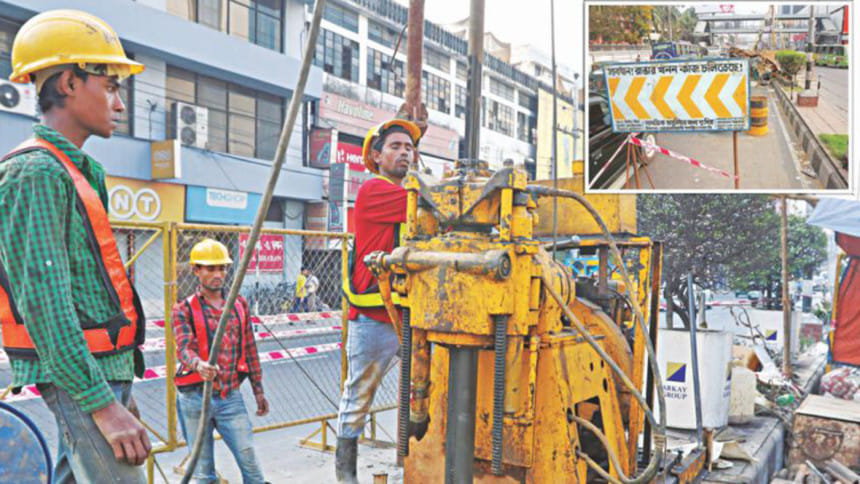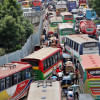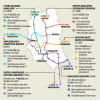Metro rail: Extra measures to be taken to check noise, shock

Some extra measures will be taken in the Dhaka metro rail project to check noise, shock and vibration in key places like Jatiya Sangsad Bhaban, Dhaka University and National Museum, authorities concerned decided today.
Besides, additional measures will also be taken within the DU area to ensure that important establishments including Raju Sculpture, TSC, and graves of three leaders are not affected and the educational atmosphere is not harmed.
"We will use some latest technology like Mass Spring System [MSS] in around 6-km key places through the metro rail route to check sound, shock and vibration," Md Mofazzel Hossain, project director of Dhaka Mass Rapid Transit Development (DMRTD) Project, said while exchanging views with reporters at his office in the capital.
Instead of glass, concrete side walls on both sides of the tracks would be made to prevent noise, he said. The height of the side wall would be 4-4.25 feet.
According to a study, the noise level in most places of the MRT Line-6 is higher than normal range. Movement of the metro rail will add no sound, Mofazzel claimed.
Existing sound level in DU library area is 67.5 decibel, 70 at TSC and 68.2 at Doyel Chattar. Metro rail contributed noise would be maximum 61.9, 61.1 and 56.5 decibel respectively, he added.
The distance between pillars in DU area would be 150 feet while normal distance will be 100 feet. These measures will be taken so that the aesthetic beauty of the area is not affected and cultural activities within the DU campus are not obstructed, added the project director.
Replying to a query regarding a section of DU students' demand to change the metro rail route, Mofazzel said it was finalised in consultation with the DU authorities in 2011. There is no scope to change the route now, he said.
The Tk 21,985 crore (approximately $2.5 billion) ambitious project is aimed at easing traffic congestion in the capital city through an improved, faster, comfortable and time-bound public transportation service.
According to the project director, a train with six air-conditioned spacious coaches will operate every four minute, enabling a commuter to travel from Uttara to Motijheel in just 38 minutes which now takes around two hours on a normal day.
A total of 24 such trains would carry 60,000 passengers every hour to both directions and drastically cut the number of private cars on the streets, Mofazzel said adding that only 3.5 percent works of the project have so far been completed.

 For all latest news, follow The Daily Star's Google News channel.
For all latest news, follow The Daily Star's Google News channel. 







Comments